Menu
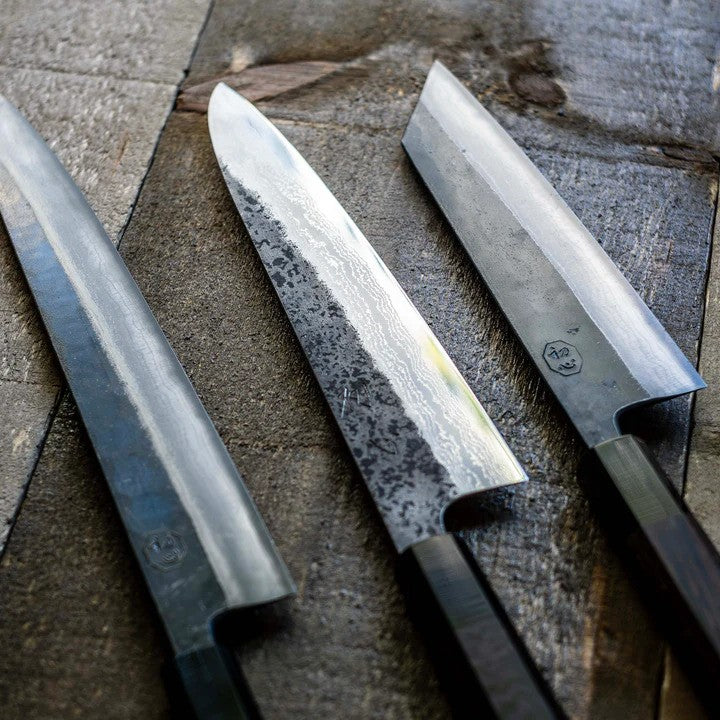
THE BLACKSMITH
HATSUKOKORO
- Choosing a selection results in a full page refresh.




















| Blade Length | 150 mm |
| Total Length | 285 mm |
| Steel | White #2 (Iron Clad) |
| Handle | Wenge |
| Ferrule | Buffalo Horn |
| Rockwell | 62-63 |
| Height Spine to heel | 43 mm |
| Width at Spine | 4.25 mm |
| Weight | 159 grams |
| Bevel | Single (Right Handed) |
Hatsukokoro Shirasagi
The Shirasagi line comes to us from Tosa city, Kochi Prefecture, Japan – made by a group of undisclosed craftsmen, and sharpened by Myojin-san, who trained at Konosuke (based in Sakai city, Osaka Prefecture, Japan). At the price these Migaki finish knives are a must have workhorse for any kit, the white #2 steel will take an amazing edge and is incredibly easy to sharpen and polish to your liking. The dark octagonal wood handle looks great with the rustic style of the blade, making it as much a show piece as a work knife.
Follow these care recommendations for your Japanese knives to protect the edge and keep them sharp as long as possible:
All products are shipped within 24 hours. We offer same day shipping for products ordered by 12pm. Please allow 4-7 business days for your shipment to arrive with standard shipping. Expedited shipping options are also available at checkout.
We offer free shipping on orders within Canada over $150 CAD and free shipping on orders to the US over $200 USD.
Curbside pick-up is available at both our Hamilton and Etobicoke locations.
To make sure our customers are always satisfied, we offer full refunds on products for 14 days after receiving them. See our full return policy for details.
More questions? Check out our shipping policy, our return policy, or reach out to us directly.

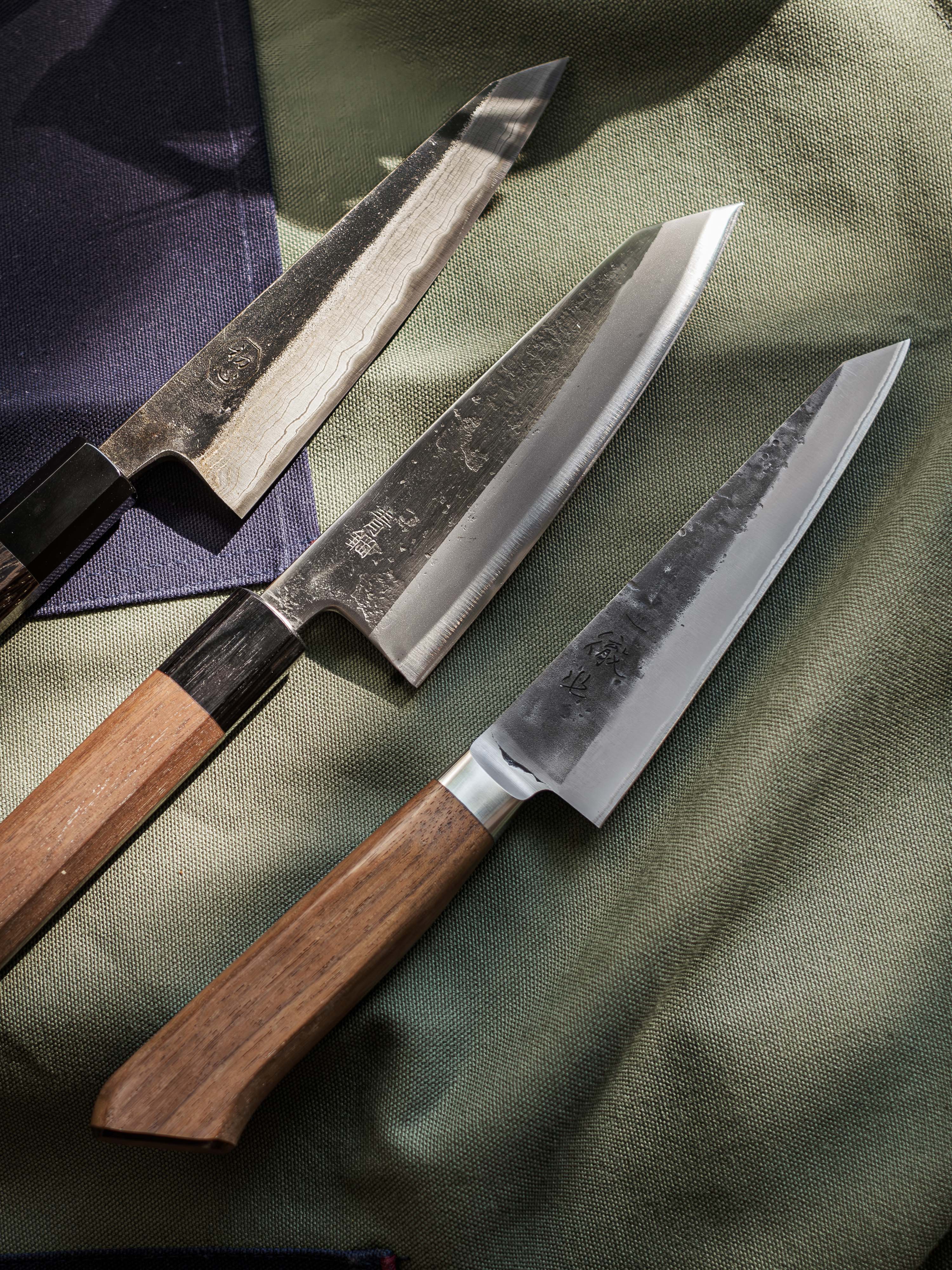
The Honesuki is designed specifically for poultry butchery, but can be used for a wide variety of butchery tasks. The "reverse tanto" or "K-tip" is ideal for getting in and around joints and bones. Though we do not recommend cutting through bone with any Japanese knife, the honesuki’s thickness in the spine and behind the edge makes it less likely to suffer damage if you nick a bone by accident. If you're looking for a knife that can handle butchery and vegetable prep, consider a petty. If you're looking for a knife specific to fish butchery, consider a deba.
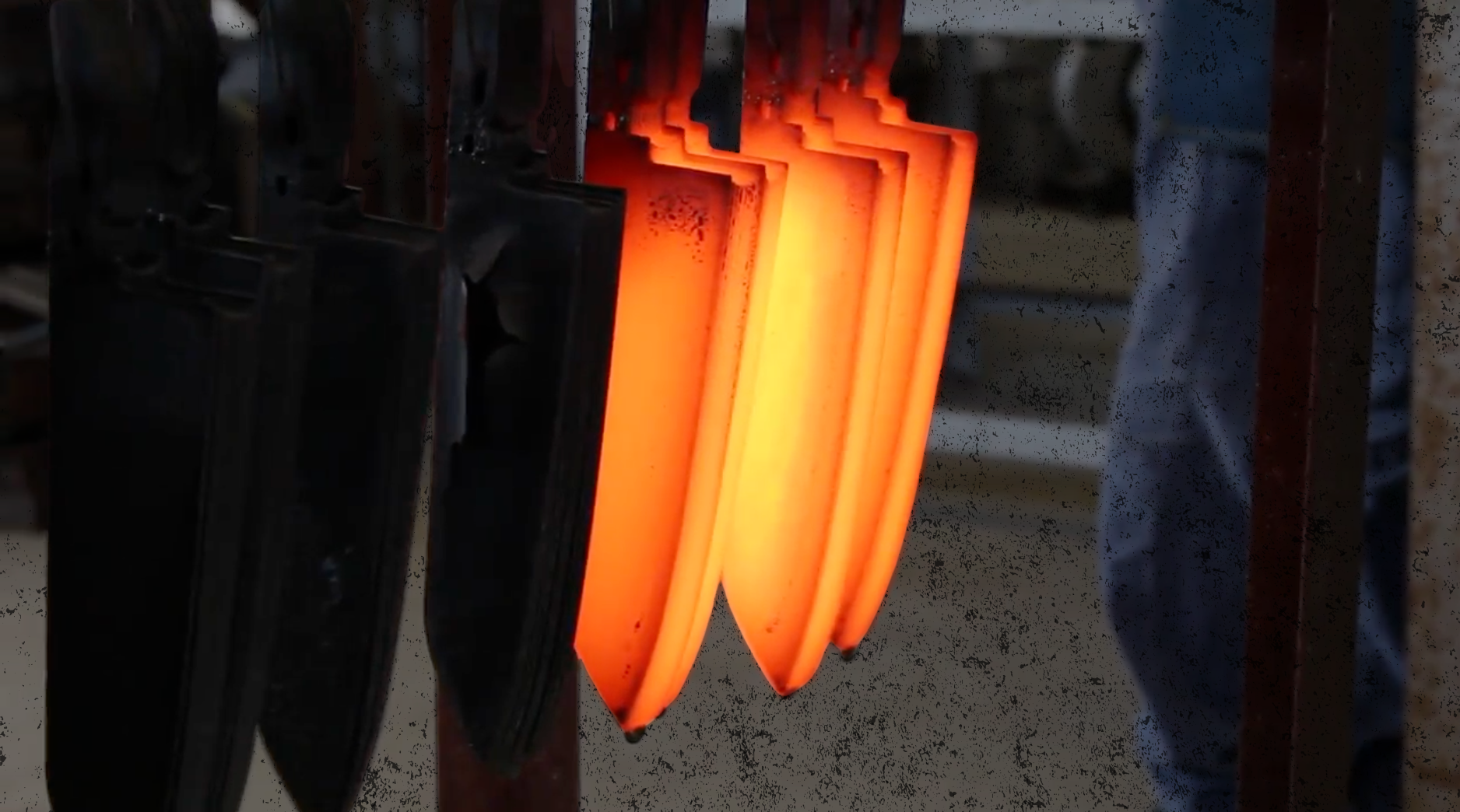
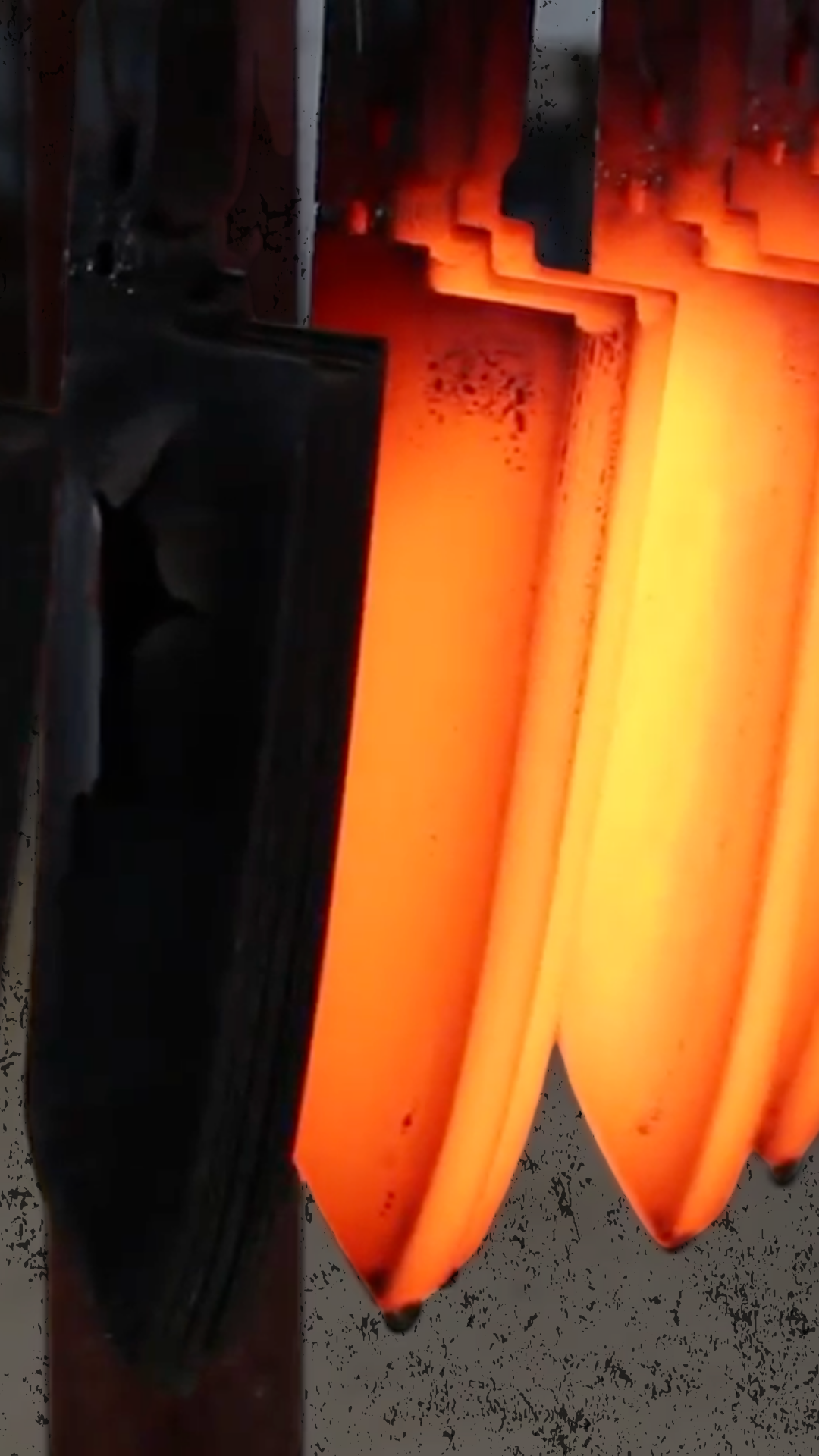
AKA White #2: This is the most pure of all steel types and is renowned for its super easy sharpening and ability to get unbelievably sharp. It is most commonly used in traditional single beveled knives, but is more prone to chipping than other steel types. It’s great for those who want the easiest sharpening experience possible for their knives.
Chemical Composition:
C 1.05-1.15%
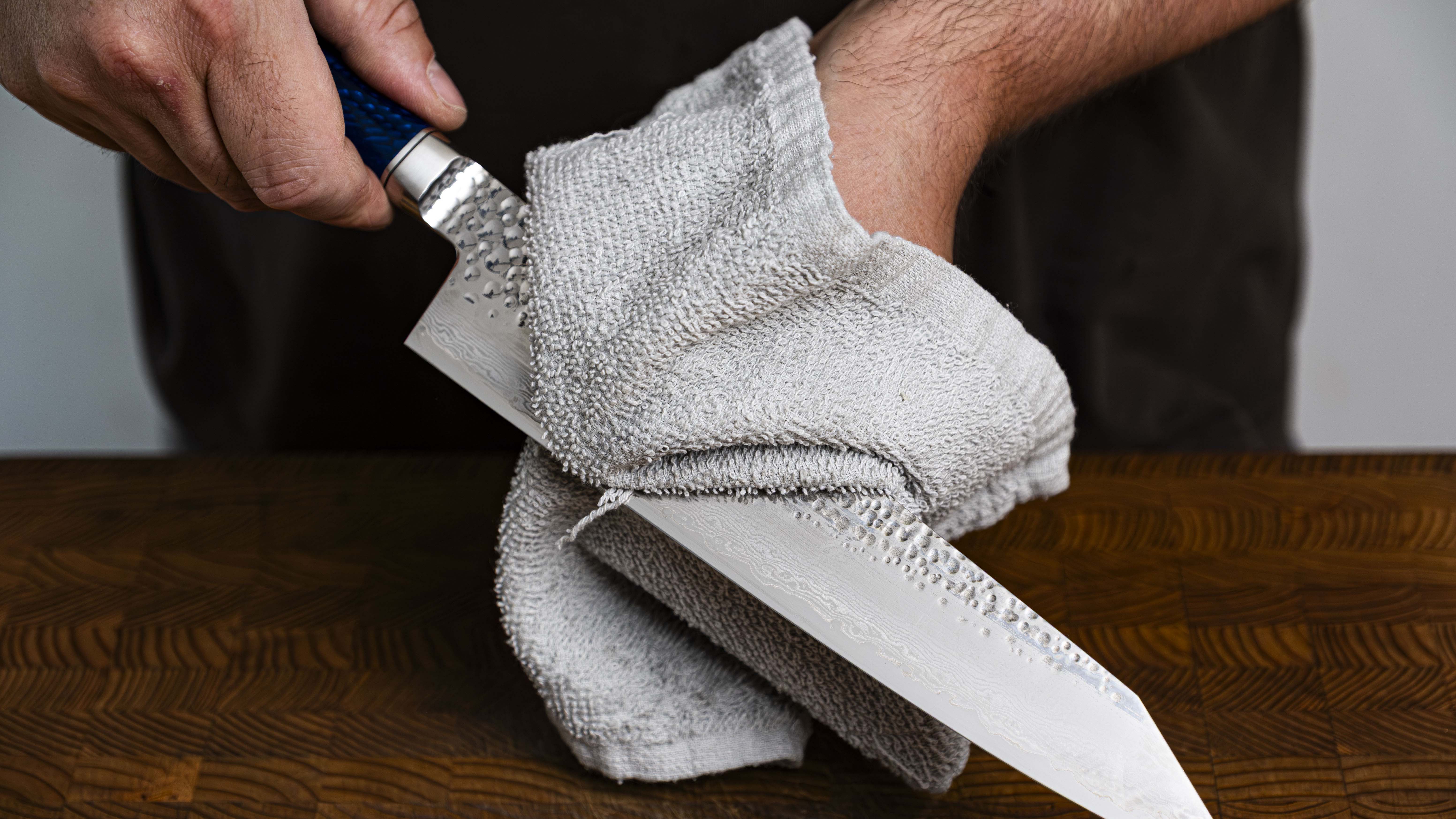
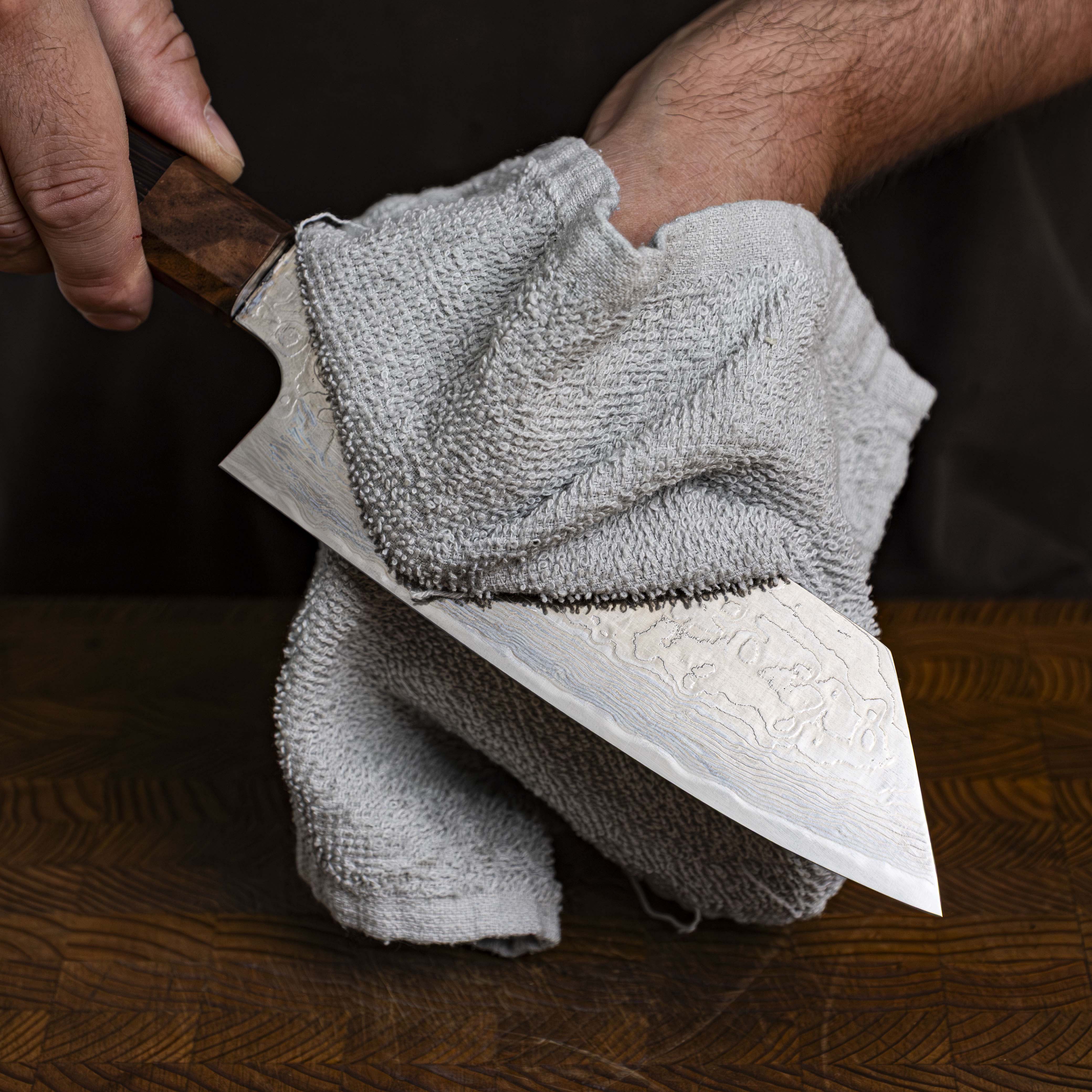
HIGH MAINTENANCE
Iron clad knives are composed of three layers of material: iron coating the outside with carbon steel inside. All layers are susceptible to rust and discolouration, so they must be kept dry and clean by wiping them down immediately after use. They will develop a patina (a darkening of the steel; blue, dark grey, and sometimes black colouration of the blade) no matter how well they are cared for. Iron clad knives are great for those who plan to thin and polish their blades, as iron is much easier to work with than stainless steel.

Hatsukokoro are masters of smithing, sharpening, and handle making. They ensure quality and a high attention to detail on their knives, so you know that you will be getting an amazing work knife. Based out of the industrial city of Amagasaki, Hyogo Prefecture, Japan, Hatsukokoro offers a wide breadth of handcrafted blades, sourcing from a variety of knife making regions across Japan. Their offerings are diverse in price point and profile, making them a great option for both industry professionals and home cooks.
